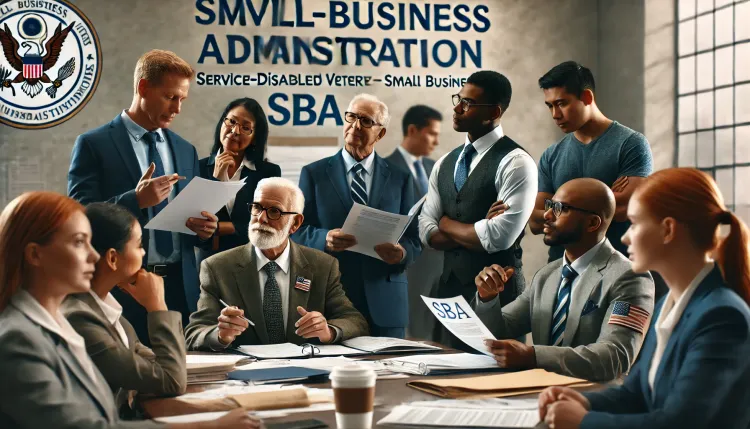Big-Stick Lobbying: How Grunt Style's Tactics Threaten VA Prescription Practices

Introduction
The latest Internal Revenue Service (IRS) Code 501(c)(3) nonprofit foundation to engage in a substantial amount of lobbying, the Grunt Style Foundation, is urging veterans to share their stories about what the Foundation considers “overprescribing” by the United States Department of Veterans Affairs in its political campaign, titled A War Cry for Change: The Revolution to Reclaim Veteran Mental Health.
The great irony is that the Foundation advocating for informed consent reform plans to use these intimate mental health stories to influence Congress and the Veterans Affairs Department through lobbying, without informing the veterans involved or reporting to either Congress or the IRS.
Clandestine lobbying, the standard operating procedure for many partisan veteran service organizations and military service organizations, is just the surface of a serious issue in Washington, D.C. Nonmedical lobbyists, armed with nothing more than anecdotal evidence ('stories'), are directly influencing highly complex medical laws and regulations that affect American doctors and veteran patients around the world.
This approach raises significant ethical concerns about transparency, informed consent, and the potential manipulation of vulnerable populations—veterans suffering from severe mental health issues—for political gain.
Grunt Style Foundation, headquartered in San Antonio, Texas, and led by President Tim Jensen—who also serves as Chief Brand Officer for the for-profit company Grunt Style—received its formal nonprofit designation from the IRS on January 7, 2022 (86-3633516), effective April 28, 2021. Jessica Lerma, the Foundation's and Corporation's former general counsel, was listed as the Foundation's secretary on its 2021 IRS Form 990, certified by the accounting firm, Schriver, Carmona & Company, PLLC.
The corporate arm of Grunt Style allocated $219,168.00 of its conservatively estimated $57 million in revenue, according to Statista’s ECDB, to the nonprofit arm of Grunt Style.
The nonprofit then distributed $229,168.00—or 0.385% of its revenue—to a list of honorable veteran nonprofits:
Operation Homefront, Soldiers' Angels, Gold Star Teen Adventures, Veterans Success Resource Group, Samp Southern Ground, Alamo Breast Cancer Foundation, The Jdog Foundation, One Health Institute, Gotta Get Away Breast Cancer Foundation, Luke’s Wings, University of Texas Foundation, Walters State Community College, Hope for the Day, Burn Pits 360, College of DuPage Foundation, and Hope Restored.
Ethical Concerns in Granting Practices
However, a significant issue arises with at least one of these grants. Grunt Style Foundation granted $20,000.00 to Burn Pits 360, led by Rosie Torres, one of The Hill’s Top Lobbyists, which is a clearly a lobbying expense.
Yet, Grunt Style Foundation certified to the U.S. Internal Revenue Service, “No” in response to the IRS’s question: “During the [2021] year did the foundation pay or incur any amount to: (1) Carry on propaganda, or otherwise attempt to influence legislation (section 4945(d))?” certified by the accounting firm, Schriver, Carmona & Company, PLLC.

Burn Pits 360 regularly attempts to influence legislation; it is one of the most prominent veterans lobbying organizations on the Hill.
“Top lobbyists, including Rosie Torres, have played instrumental roles in guiding their clients through the intricate web of regulatory activities initiated by the Biden administration. As the administration allocates billions of dollars in funding, grants, and tax credits through significant legislative packages like the Inflation Reduction Act (IRA), Infrastructure Investment and Jobs Act, and CHIPS and Science Act, these lobbyists are at the forefront of shaping policy outcomes.” – Burn Pits 360.
Skirting the Lobbying Disclosure Act
Hiding from the Lobbying Disclosure Act of 1995 (2 U.S.C. § 1601), by shuffling around donation dollars through grants is a very common—albeit clever—stunt to avoid both lobbying disclosure law and IRS regulations.
Federal lobbyists are required to register with the Clerk of the United States House of Representatives and the Secretary of the United States Senate. Anyone failing to do so is punishable by a civil fine of up to $50,000. The clerk and secretary must refer any acts of non-compliance to the United States Attorney for the District of Columbia.
As an example, the Veterans of Foreign Wars (VFW), a lobbying group, is registered with both the House (ID# 313230000) and the Senate (ID# 40010-12). Pat Murray, VFW’s legislative director filed his most recent lobbying report on April 30, 2024 after the VFW engaged the U.S. Senate, U.S. House of Representatives, Defense - Dept of (DOD), Labor - Dept of (DOL), Small Business Administration (SBA), Veterans Affairs - Dept of (VA), Veterans Employment & Training Service on issues related to “Veteran benefits and health care.”
Of course, the VFW's scant report doesn’t tell us anything specific about what they have been lobbying for—that's their SOP—but at least they registered and filed a report. 'A' for effort.
According to the IRS, "organizations described in section 501(c)(3) are prohibited from conducting political campaign activities to intervene in elections to public office." While they are allowed some lobbying, it must not constitute a substantial part of their activities, and they must not engage in any campaign activity for or against political candidates.
Many VSO/MSO organizations circumvent federal law by 'donating' to other veterans' nonprofits engaged in lobbying under the guise of home, car, or cash donations. This practice effectively launders the money so that lobbying expenditures never appear on IRS Form 990 or federal lobbying reports, making them seem like innocuous, innocent veterans' donations to federal officials. In other words, they hide the true extent of their lobbying activities, their donors, their controlling entities, and their partisan goals.
No one is arguing that Americans should not have the right to advocate for their party’s legislation. It's a constitutionally protected activity to engage Congress with our concerns and goals.
However, failing to disclose lobbying to the IRS and Congress is problematic because it becomes very difficult to track who is truly behind attempts on the Hill to change, enact, or remove federal laws and regulations, unless one reads these reports for fun and tracks lobbyists professionally.
Generally, nonprofits are not required to disclose their donors—so as far as the American public is concerned, a foreign government could easily be influencing federal legislation and regulation through targeted donations to veterans' 501(c)(3) groups, and we would have no idea—this is a problem, as evidenced by the recent arrest of former American diplomat Manuel Rocha.
Grunt Style Foundation’s Legislative Aims
According to Huffington Post contributor Leah Harris, Grunt Style Foundation seeks four aims:
- “First, to ensure veterans and their families understand the risks of the medications they are prescribed by adding a signatory informed consent requirement, similar to what is required for long term opioid prescribing, for all psychotropic medications and drugs with box warnings prescribed at the VA.”
- “Retraining of all VA prescribers and mental health clinicians on efficacy and risk profiles of medications with FDA box warnings.”
- “Reform VA de-prescribing guidelines for all psychotropic drugs with FDA box warnings.”
- “Finally, the campaign seeks to work with the VA to share their rates of psychotropic medication prescriptions, and post-mortem toxicology report data for veterans treated by the VHA who died by suicide or indeterminate causes, starting in the early 2000s when psychiatric drug prescription rates at the VA began to soar.”
However, that’s not all.
The Grunt Style Foundation also seeks to get the attention of Congress. “We’re walking in and we’re carrying a big stick, and we’re gonna thump all the bad actors in a way that has not been done before,” said Timothy Jensen, the Grunt Style Foundation’s Board President and co-owner of Grunt Style. According to Jensen, “All the charades that have been put on before in front of Congress — we’re going to sink that ship.” It’s not clear who Jensen considers “bad actors” and what he means by “thump[ing]” them.
In other words, Jensen plans to use the Foundation as an unofficial, unregistered lobbying firm—as so many other veteran nonprofits have been doing in the veterans sector with zero accountability.
Who are these unelected, unregistered lobbyists speaking on mine and other veterans’ behalf?
According to an Oct 8, 2020 San Antonio Express-News piece written by Brandon Lingle, “As the money poured in, Grunt Style became a chaotic, volatile workplace, according to six former employees interviewed by the San Antonio Express-News. They describe a company whose leaders — Alarik chief among them — made a series of reckless business decisions and nurtured a ‘frat house’ work environment, including bouts of drinking. One ex-employee, San Antonian Nikki Tey, said she was frequently disparaged at work because of her gender. ‘There was really no respect for women,’ Tey said. ‘I’ve never worked in such a difficult environment.’”
Daniel Alarik, the company’s founder, represented by Cubeta Law Group, sued Grunt Style LLC on October 2, 2020 (Case No. 2020CI19151, 166th District Court, Texas) after the company allegedly wrongfully terminated him. After years of contentious litigation, the parties agreed to a confidential settlement in April of 2023.
The company received a significant investment from C3 Capital Partners III, L.P. in 2017. This investment included a loan with a "springing proxy" provision, which allowed C3 to take control of Grunt Style under certain conditions. This provision was exercised in 2019, leading to a restructuring of the company's leadership and operations. In addition to Grunt Style, C3 boasts New World Natural Brands, Green Goo, and Flojos as part of its investment portfolio.
Big-stick-carrying Jensen’s recent threat to “thump” bad actors tracks effortlessly with the company’s longstanding bro-vet mentality, whereby sheer veteran status alone will win the day—something even Representative Nehls had to learn the hard way is not actually an effective political strategy after being called out for his Combat Infantryman Badge (CIB).
Getting a bill passed is not as easy as walking into Congress with a big stick and thumping bad actors.
It’s also not as easy as posting depressing stock imagery of pill bottles and unilaterally determining on behalf of all U.S. military veterans—which includes this author and his immediate family—that the U.S. Department of Veterans Affairs is “overprescribing.”
Timothy Jensen is not a medical doctor, and neither is Will Wisner.
The men are both military veterans, with their own stories, perspectives, and biases, which apparently is all the experience one needs to be an expert on federal law, 38 CFR, Veterans Health Administration Directives, and VHA Handbooks. Obviously, the Foundation’s leaders are quite passionate about their belief that the VA is overprescribing, and that is admirable.
Reaching out to members of Congress and the Executive is equally admirable—but doing so behind the scenes, without lobbying reports, without accountability—that’s a serious problem because folks who disagree with the leaders, the Foundation, and the lobbyists the Foundation is “donating” to, could walk into a VA months down the road to find that the prescription they’ve been using for years is now a “black-listed” med and will no longer be prescribed because a small group of extremely well-off lobbyists changed the regulations in darkness.
Bottom line, we live in a democracy, not the Republic of Grunt Style.
If some gung-ho, big-stick-carrying lobbyists want to enter the legislative brawl, fine; but do it legally, and don’t be surprised when other veterans disagree with ridiculous assertions that the VA is overprescribing.





Member discussion